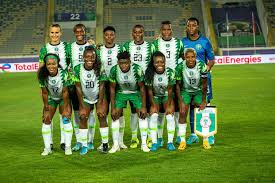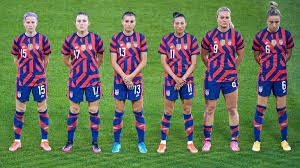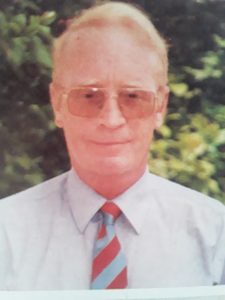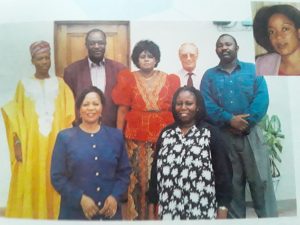
Super Falcons…Equal Pay remains elusive
There is no gainsaying the fact that “Equal Pay” for men’s and women’s national football teams in Africa, including Nigeria, is a complex issue with several reasons why it might not be fully implemented unlike what obtains in Europe, Asia, Oceania and the South and North American countries where men’s and women’s teams are enjoying equal pay in football and other sports for quite some time now.
This is even as the genuine demand for equal pay by the players of Nigeria’s senior women’s football team Super Falcons which started many years ago may not yield any result at the moment due mainly to the economic reasons rather than the willingness of the Nigeria Football Federation (NFF) to start the implementation of the noble demand.
In fact, one major factor working against the full implementation of equal pay for men’s and women’s players in Nigeria and in some African countries is the economics of football management which involves how much men’s and women’s teams generate for the Member Associations (MAs).
In simple terms, it is true, except in the United States of America (USA), that men’s football generally generates more revenue, leading to higher sponsorship and viewership. This disparity in income can translate into significantly different budgets and pay scales for the respective teams.
Additionally, some argue that the quality and success of men’s football are perceived as higher, justifying the higher compensation for male players. This is also true as men’s football matches attract more fans to the stadiums and command wider television viewership with its attendant huge revenue yields for the federations.
A closer look at the reason which includes Revenue Disparity, Perceived Quality and Success, Budgetary Constraints, Lack of Awareness and Advocacy, Resistance from some parties, Funding and Support, show that the implementation of equal pay demands in Nigeria and many African nations will remain a mirage.
For example, under Revenue Disparity, men’s football often enjoys higher television viewership, sponsorship, and ticket sales, resulting in more revenue for national federations. This leads to a significant difference in the financial resources available for men’s and women’s teams.
Also, men’s teams are paid much higher participation fees or prize money in FIFA, CAF and NFF global, continental and national competitions while the women’s teams only get a fraction of what men’s football players get.
On Perceived Quality and Success, some argue that men’s football is more popular and of a higher quality, leading to higher pay for male players. This perceived disparity in quality can influence the allocation of funds and resources.
Resistance from Some Parties: Some football officials and stakeholders may resist the implementation of equal pay, arguing that it is not feasible or that the focus should be on building up the women’s game rather than addressing pay disparities.
On Funding and Support, some national federations allocate significantly more funding to the men’s national team, sometimes even excluding women’s teams entirely from certain programs or competitions. This can hinder the development and competitiveness of the women’s teams.
Lack of Awareness and Advocacy: There is a need for greater awareness and advocacy for equal pay and fair treatment of women in football, especially within African nations.
Finally, Budgetary Constraints can be said to be the elephant in the room as federations often have limited budgets and need to prioritize funding for various development programs and teams. This can lead to a focus on men’s teams, as they are seen as generating more revenue and attracting more attention.
Many examples of football federations that are undergoing through Budgetary Constraints can be seen in the African continent with sponsorship opportunities very hard to come by in Africa while the opposite is the case in Europe and USA where sponsors are chasing the federations around with sponsorship deals.
For instance, in USA, the US Soccer Federation (USSF) is spoil for choice as it has no fewer than 18 top rated corporate sponsors with renowned automobile company Volkswagen (VW) the ‘Presenting Sponsor’ while sportswear manufacturing giants Nike as the ‘Official Apparel’.
Also, there are 16 other Official Sponsors including Anheuser-Busch-Official Beer Partner, AT&T-Official Communications Services Partner, Allstate-Official Insurance Partner, Jim Beam-Official Spirits Partner, Marriott Bonvoy-Official Hotel & Lodging Partner and New York Life-Official Life Insurance Partner

Team USA….4-Time FIFA WWC Winners started Equal Pay Campaign and won many years ago
Others are Bank of America-Official Banking Partner, The Home Depot-Official Home Improvement Partner, The Coca-Cola Company-Official Soft Drink, Ticketmaster-Official Ticketing Partner Deloitte-Official Advisor, Truly’Official Hard Seltzer, Haleon-Official Consumer Healthcare Product Partner, VISA-Official Payment Services Partner, Henkel-Official Partner, and American Airlines- Official Airline Partner.
With the above mentioned multimillion dollars sponsorship, there is no doubt that USSF became the first country in the world to implement equal pay system as Team USA men’s and women’s players smile to the banks every pay day.
It is the same case in Brazil where the primary sponsor of the Brazil senior women’s football team is Iberdrola, a Spanish company with a global commitment to promoting women’s sport and equality.
They support not only the national team but also the U-19 and U-17 national teams, the Copa de la Reina, and the Primera Iberdrola top division in Brazil.
In England, the country’s senior women’s football team, the Lionesses, has a variety of sponsors and partners. Some notable partners include Xero, Marks & Spencer, and Google Pixel.
Other sponsors include Hilton, EE, and Adobe, which are lead sponsors of the Women’s FA Cup. Boots UK also previously partnered with the team.
However in Africa, the reverse is the case as sponsors for the women’s football teams both national and clubs are hard to come by with only the South Africa’s Banyana Banyana being sponsored by three big companies in the country. They are automobile manufacturing giants Volkswagen Group Africa (VWGA); Sasol Limited, commonly referred to as Sasol, an integrated energy and chemical company based in South Africa and Hollywoodbets, a significant sponsor of the South African women’s national football team players.
Unlike in Nigeria and many African countries, Volkswagen Group Africa on November 1, 2024 formerly entered into partnership with SAFA as the vehicle partnership between SAFA and VWGA marked a significant milestone in the company’s commitment to support the development of girls’ and women’s football in South Africa.
All the national women’s teams, including the Under-20 (Basetsana), the Under-17 (Bantwana), Under-15 and the schools Under-15, stand to benefit from the partnership, according to SAFA President Dr Danny Jordaan. In addition to VWGA, Hollywoodbets and Sasol, Shield, a Unilever South Africa brand, also supports Banyana Banyana.
With these corporate sponsorship opportunities, little wonder SAFA under Dr. Danny Jordaan has been able to implement the equal pay demands by the Banyana Banyana players which had the presidential backing after South Africa’s President Cyril Ramaphosa announced in 2022 during government official reception organised for the CAF Women’s Africa Cup of Nations (WAFCON) Morocco 2022 winners, Banyana Banyana.
Aside South Africa, Zambia, Malawi and Sierra Leone are three other African countries where equal pay for men’s and women’s national team players is being implemented with that of the Sierra Leone Football Association (SLFA) led by Ms. Isha Johansen who also heads the Organizing Committee for Women’s Football at CAF the most significant because the small West African nation is a minor in African football.
In contrast, 96% of countries in Africa including the “Giant of Africa” Nigeria are yet to implement equal pay for game bonuses and allowances with the Super Falcons’ case very peculiar because of the team’s larger than life stature in Africa and world football after it had dominated Africa for over two decades and counting.
For example, the team managed by NFF is the most successful women’s football team in Africa. It has won the CAF WAFCON nine times since 1998, and two times (1991 and 1995) when it was not a tournament. With this indisputable pedigree and achievements, it is not out of place for the Super Falcons to receive equal pay as the Super Eagles, afterall they have won more CAF trophies and have qualified for the FIFA World Cup finals more times than the men’s team Super Eagles.
Regrettably, the economic dynamics rather than the political will that will permit the NFF to undertake the implementation of equal pay demands of the Super Falcons players would not allow this dream to become a reality anytime soon.
In fairness to NFF leadership, past and present, while there is a strong movement towards equal pay for women in football, several factors, including revenue disparities, perceived quality, and budgetary constraints, are making it challenging for equal pay to be implemented fully in Nigeria.
Worst still, the absence of strong sponsors for the women’s game in Nigeria have made it extremely difficult for the NFF execute its laudable plans unlike what obtains in South Africa where big corporate citizens and multi-national companies are begging SAFA to be part of the action.

Daddy Super Falcons…British-born Iain Nelson, ex-National Marketing Manager of PepsiCo/7-Up Bottling Co.Plc gave Super Falcons and NFA first multi-million naira sponsorship to lift the team and women’s football in Nigeria years ago.
Indeed, the last time Super Falcons had Official Sponsors was 25 years ago when soft drink giants, PepisCo under licence of Seven-Up Bottling Company Plc signed a multi-million naira four-year sponsorship deal to support the payments of match bonuses and allowances of the players and coaches.
This sponsorship which also covered the Nigeria Women’s Football League (NWFL) and Federation Cup (Women’s) then under the management of the Nigeria Football Association (NFA), was made possible, thanks to the foresight of its British-born former National Marketing Manager, Mr. Iain Nelson, who was persuaded to extend the Pepsi sponsorship to the women’s game by his Nigerian associate, Mr. Harry Awurumibe, a renowned women’s football advocate and sports journalist.
The Pepsi sponsorship through the Seven-Up Bottling Company Plc, ran from 1998 to 2002 including supporting the team’s preparations for the first CAF Africa Women Championship (AWC) in Nigeria in 1998; Sydney 2000 Olympics, and also supported the team to win back to back AWC now WAFCON in 2000 too.
The sponsors demonstrated their commitment to the development of women’s football in Nigeria by pledging financial support not only the Super Falcons’ preparations for the AWC and Sydney 2000 Olympics, they also provided a sum of N750,000 as players’ allowances during the team’s camping in Lagos and Kaduna, pledged an additional N5 million to the NFA for logistics and refurbished Super Falcons Coaster bus as well as furnishing Women’s Football Department at former NFF Glass House in Abuja.
Sadly, after the Pepis/ Seven-Up Bottling Company sponsorship ended, neither the Super Falcons nor the NWFL and Federation Cup (Women’s) have been able to attract even the smallest of sponsorship opportunities till date, although it is claimed that the Super Falcons are currently being sponsored by Nike, according to reports. They are also said to be supported by communications company MTN, Premium Trust Bank, Chery, and ValueJet as the Official Airline partner, among others, according to the NFF, yet not one single sponsor tied its sponsorship like what Pepsi/Seven-Up Bottling Company did in the past.
In the face of the present arrangement, where all the 12 official sponsors of the NFF are tied strictly to Super Eagles, it will be difficult for the federation to implement equal pay like their SAFA and SLFA counterparts because of the huge financial implications involved in running no fewer than 11 national teams under the watch of the NFF.
For example, apart from the Super Eagles and Super Falcons, the NFF also spends hugely on the national U-23, U-20, U-17, and U-15 men’s teams. Women’s U-17 and U-20, as well as CHAN Eagles, Sand Eagles, and Fustal Eagles, respectively.
Despite the long history of strikes, protests, and sit-in by the Super Falcons dating back to 1998 when the first captain Florence Omagbemi and her teammates refused to accept their paltry match bonus after thrashing Atlas Lionesses of Morocco 8-0 in the opening match of the maiden AWC.
After the victory at Ranch Bees Stadium in Kaduna on Saturday, October 17, 1998, the players felt they deserved more money than what they were offered as bonus hence they refused to accept the match bonus and also threatened not to train for the subsequent fixtures.

Pacesetters…Members of the NFA Women’s Football Project 1997-2,000 Team that produced and executed the Blueprint which saw the Super Falcons win the 1st CAF AWC in 998, reached q/final of USA’99 FIFA WWC and qualified for Sydney 2;000 Olympics. (L-R) Mr. Harry Awurumibe (in yellow agbada/ cap) and other members pose for group photo after inauguration in Lagos in 1997.
This made the then NFA Secretary General Mallam Ahmed Sani Toro reach out to this writer who was embedded in the team in Kaduna and a confidant of the team leadership to intervene and broker peace after Toro had promised an increase in the match entitlements of the players.
However, Super Falcons created international scenes in South Africa years later when they held out in their hotel for three days after then NFA failed to pay their bonuses for winning the 2004 AWC.
That was followed up by another protest at the Presidential Villa and National Assembly Complex in Abuja on December 14, 2016 by Super Falcons after returning to the country after winning their 8th WAFCON title with a 1-0 victory over hosts Cameroon on 3 December under head coach Florence Omagbemi in Cameroon in 2016.
Their protest coincided with former President Muhammadu Buhari’s arrival at the National Assembly to present next year’s (2017) budget just as
they also refused to leave a nearby hotel until they received win bonuses of $17,150 each (£13,500).
Also, Super Falcons in 2019 refused to vacate their Mercure Grenoble Centre President Hotel, Grenoble after Nigeria was knocked out of the FIFA Women’s World Cup in the Round of 16 by Germany at the Stade del Alpes in the city of Grenoble, over unpaid bonuses and allowances.
Again, Super Falcons quarrelled with the NFF over owed camp allowances and match bonuses as recent as in 2022 and 2023 in the last edition of CAF WAFCON in Morocco and FIFA Women’s World Cup finals in Australia and New Zealand.
No doubt, these spate of bickering have limited the overall performance of the team in the recent time even as the NFF’s financial difficulties have forced the federation to cut backroom staff and slash the salaries and allowances of the various national team coaches.
In conclusion, addressing these issues requires a combination of advocacy, increased funding for women’s football through aggressive sponsorship drive in order to raise huge money to run the sport, and a change in mindset among football officials and stakeholders.
HARRY AWURUMIBE is a vocal women’s football advocate
 Sports Revelation Online ..breaking authenic sports reports
Sports Revelation Online ..breaking authenic sports reports